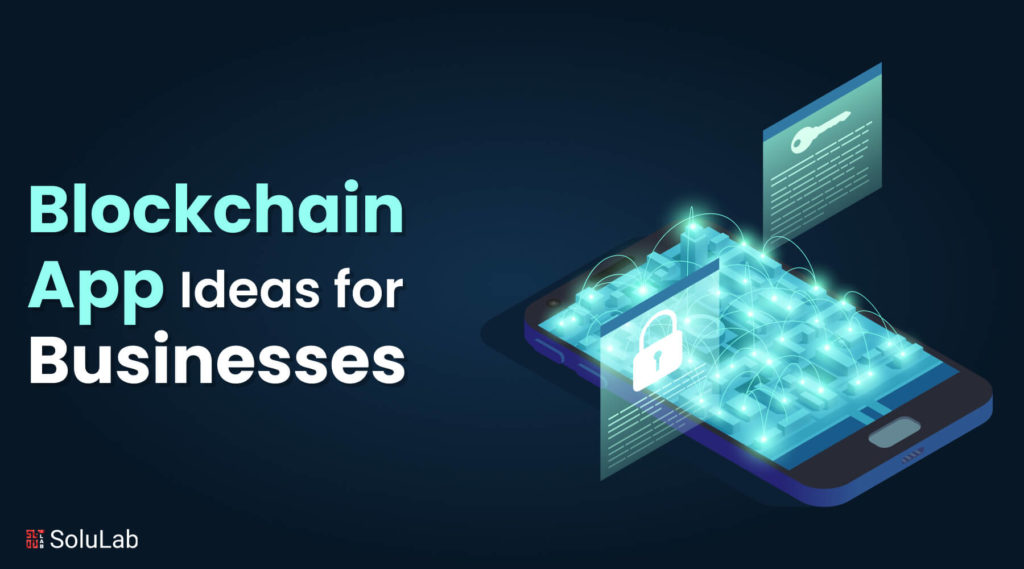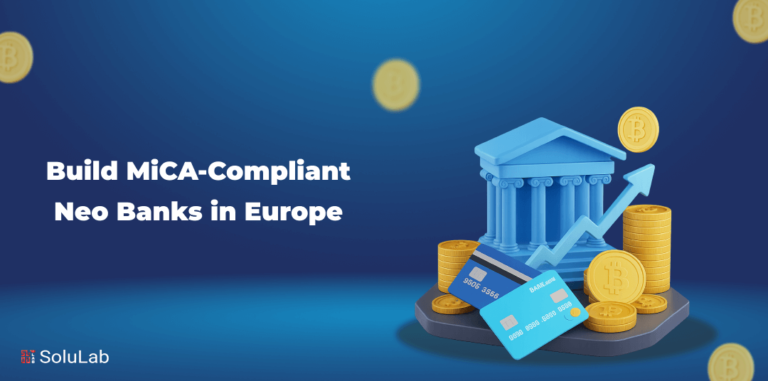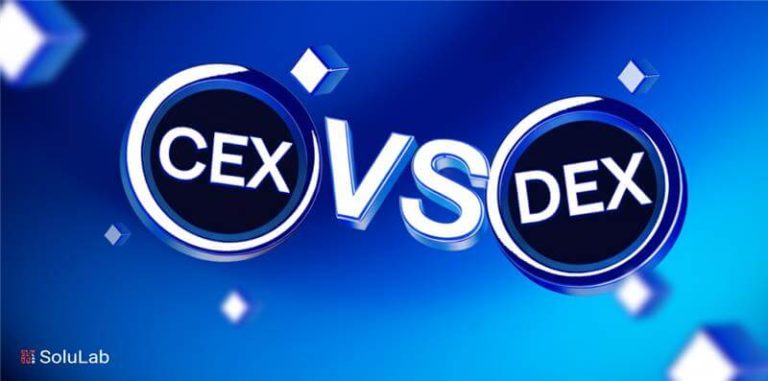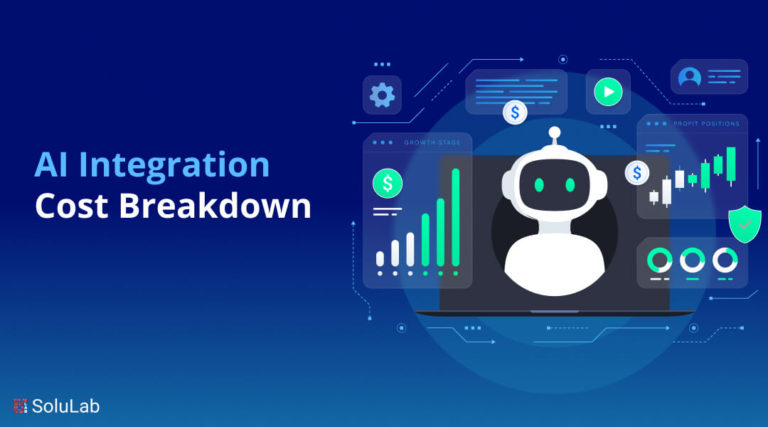
In 2008, a person or group of people called Satoshi Nakamoto came up with a whitepaper explaining Blockchain and Bitcoin. Blockchain is disrupting technology and has become a buzzword due to its continuous advancements. People have started using Blockchain technology with other technologies like IoT, AI, Extended reality, and game development for creating useful applications. Blockchain technology could be the next important technology after the Internet. You will be surprised to know that several businesses use different Blockchain applications to transform their traditional business models. This blog will help you get the best Blockchain app ideas to create new opportunities for growing your business.
Why has Blockchain Technology Become Such an Important Topic for People?
According to recent research, the global Blockchain market would see a huge rise, and it would be worth around $20 billion industry by the year 2027. Blockchain technology has opened various doors for all of us by transforming how we operate businesses.
According to a survey conducted by McKinsey, people are spending a lot of money on Blockchain technology. Entrepreneurs worldwide are looking for great Blockchain app ideas in 2024 to enjoy the business benefits. For example 2018, people spent billions of dollars on Blockchain-based applications. Also, in 2019, the amount paid was around $2.9 billion, which Will turn to $12.4 billion by 2024. Companies like IBM have invested much money in Blockchain-based solutions in the IOT industry and have been enjoying the amazing benefits.
Also, various developing countries believe that Blockchain would give them a competitive advantage over others. Let’s look into a study done by Tata Communications. It has been shown that many developing countries would use the latest technologies like IoT, Blockchain, and AI for simplifying peer-to-peer and B2B transactions. Various business leaders in countries like India, Saudi Arabia, and the UAE are convinced by the idea of integrating Blockchain into their infrastructure.
Here are Some Reasons Why Blockchain has Become an Important Topic.
- It records and validates all the transactions, making it very secure and reliable.
- It does not need any third party to confirm or approve the transactions.
- Various users are in control of all the transactions and information.
- It has features like accuracy, ti, consistency, and completeness.
- This technology ensures greater transparency.
- Blockchain reduces transaction times.
- It is a decentralized system; hence it is less prone to hacking.
How Could Blockchain be Used in Businesses?
Various companies have started using Blockchain technology, and they are looking for the best Blockchain app ideas in 2024 to transform their existing processes. Blockchain technology can help to streamline processes and ensure the security of the data. It would allow them to create an advantage and stay competitive in the industry. Blockchain can potentially revolutionize the whole business or a few corporate sectors. Many companies are still scratching their heads, wondering about various applications of Blockchain. Research and look for the latest Blockchain mobile app ideas for your business.
Who will Gain the Maximum Benefits from Blockchain Technology?
Blockchain and its application is a trending topic on the internet. With the development of the Ethereum platform, many companies have begun to develop decentralized applications on the Ethereum platform. Many business owners have started to use Blockchain, and it has the potential to establish efficient methods for secure transactions. Blockchain can benefit various industries like banks, Voting, real estate, retail, Healthcare, and many more.
What is the Future of Blockchain Technology for Different Businesses?
Many people remember the world before emails, smartphones, and the internet. The Internet has proved to be a revolutionary technology in the last few decades. Similarly, Blockchain would revolutionize if it comes into implementation since it is all about decentralization and centralization processes. It makes things more transparent and gives people real-time insights into money matters.
What are the New Types of Businesses Which Will Emerge with Blockchain Technology?
Blockchain could bring various drastic changes. There will be an application but fully decentralized. Multiple industries, such as banks and many more, would look for the best Blockchain companies to transform their Blockchain app ideas into reality. Whether you want to prevent fraudulent claims for insurance or wish to make global payments less error-prone for banks, Blockchain technology can be the right fit. The supply chain industry can use sensors to get accurate data on the location and condition of the supplies. Blockchain can also help healthcare providers to store and encode the patients’ data and deliver better treatments. Blockchain and smart contracts technology can help protect the music industry’s rights and ownership. Blockchain can also facilitate better record-keeping for birth and death certification for the citizens of a country. One should brainstorm the best Blockchain app development ideas for 2020 and look for ways to improve the business.
Which Industries Would Make Good Use of Applications Over the Next Decade?
Companies like real estate, small to medium-chain supply chains, healthcare, finance and banking, education, and others will use Blockchain technology in 2020. It has already been seen that various enterprises would make use of Blockchain applications.
Further extensive research has listed multiple applications where Blockchain could be used in businesses.
1. Supply Chain Management:
- Blockchain in the supply chain increases transparency and accountability in supply chain management processes, reducing fraud and counterfeit products.
- Real-time tracking and tracing of products, allowing businesses and consumers to verify authenticity and ensure ethical sourcing.
- Streamlined inventory management and reduced costs through automated smart contracts for order and payment processing.
- Improved efficiency and reduced paperwork by digitizing and securely storing supply chain documentation on the blockchain.
- Enhanced supplier collaboration and trust through a shared ledger that facilitates data exchange and validation.
2. Real Estate Transactions:
- Secure and transparent property transactions by recording ownership history and property details on the blockchain.
- Efficient and streamlined contract management through smart contracts, automating processes like property transfers and title searches.
- Prevention of fraud and title disputes by providing a tamper-proof and immutable record of property ownership.
- Faster and more cost-effective transactions with reduced reliance on intermediaries like lawyers and agents.
- Increased investor confidence through transparent access to property information and transaction history.
3. Digital Voting System:
- Ensured transparency and security in elections by recording and verifying votes on the blockchain.
- Elimination of voter fraud and manipulation by creating a tamper-proof and auditable voting record.
- Increased voter participation through remote and secure voting options enabled by blockchain technology.
- Streamlined vote counting and result verification, reducing human error and ensuring accurate election outcomes.
- Greater trust in the electoral process and increased public confidence in democracy.
4. Intellectual Property Protection:
- Secure and decentralized storage of intellectual property rights, providing proof of ownership and preventing unauthorized use.
- Instantaneous timestamping and authentication of creative works, establishing a provable creation record.
- Facilitation of intellectual property licensing and monetization through smart contracts, automating royalty payments, and usage tracking.
- Enhanced collaboration and transparent attribution of contributions in creative industries.
- Simplified copyright enforcement and protection against infringement through immutable proof of originality.
5. Royalty Tracking for Musicians:
- Automated royalty payments based on verified usage data, ensuring fair compensation for musicians and reducing disputes.
- Transparent and auditable royalty distribution through smart contracts, eliminating intermediaries and reducing administrative costs.
- Real-time tracking and reporting of music usage, enabling accurate and timely royalty calculations.
- Improved monetization and revenue streams for independent artists through direct access to a global audience.
- Efficient rights management and licensing management enable collaboration and remixing while protecting artists’ interests.
6. Healthcare Data Management:
- Blockchain in healthcare secures the storage and sharing of patient health records, providing authorized healthcare providers with immediate access to critical information.
- Improved interoperability and care coordination by enabling seamless medical data sharing across different healthcare systems.
- Enhanced patient privacy and data security through encryption and decentralized storage on the blockchain.
- Reliable and immutable audit trail of health records, reducing errors and fraud in the healthcare industry.
- Securely and ethically sharing anonymized patient data for studies facilitates medical research and innovation.
7. Insurance Claims Processing:
- Automated and streamlined insurance claims management through smart contracts, reducing paperwork and processing time.
- Enhanced accuracy in claims assessment and reduced fraud through the transparency and traceability of claim transactions.
- Faster claims settlement through automated validation and verification processes enabled by blockchain technology.
- Improved customer experience with real-time claims tracking and increased transparency throughout the process.
- Cost savings for insurance companies through reduced administrative overhead and improved fraud detection.
8. Decentralized Energy Trading:
- Peer-to-peer energy trading facilitated by blockchain, allows individuals and businesses to buy and sell excess energy directly.
- Increased renewable energy adoption by incentivizing small-scale producers to participate in the energy market.
- Transparent and traceable energy transactions, ensuring fair pricing and promoting a more competitive market.
- Efficient and decentralized grid management through peer-to-peer energy sharing and load balancing.
- Empowerment of energy consumers to make informed choices and actively participate in the energy transition.
9. Charity and Donations:
- Enhanced transparency and accountability in charitable donations, allowing donors to track how their contributions are used.
- Increased trust and donor confidence through transparent records of donation transactions on the blockchain.
- Streamlined donation management and reduced administrative costs for charitable organizations.
- Blockchain technology enables increased donor engagement and participation through gamification and reward mechanisms enabled by blockchain technology.
- Improved efficiency in fund disbursement and allocation efficiency, ensuring donations reach intended beneficiaries more effectively.
10. Digital Identity Verification:
- Secure and tamper-proof digital identities, reducing identity theft and fraud.
- Simplified and streamlined identity verification processes, eliminating the need for repetitive document submissions.
- Increased data privacy by enabling individuals to control their digital identity information.
- Seamless and secure authentication for accessing online services and platforms.
- Prevention of unauthorized access and unauthorized use of personal information.
11. Food Safety and Traceability:
- An immutable record of food supply chain transactions, ensuring transparency and accountability.
- Rapid identification and containment of foodborne illnesses through traceability of contaminated products.
- Authenticity verification of organic or premium food products through recorded certifications on the blockchain.
- Reduction of food waste by optimizing supply chain processes and minimizing spoilage through real-time monitoring.
12. Cross-Border Payments:
- Fast and cost-effective cross-border transactions with reduced fees and intermediaries.
- Increased financial inclusion by providing access to banking services for the unbanked population.
- Improved transparency and auditability of financial transactions, reducing money laundering and fraud.
- Facilitation of remittances, enabling individuals to send money to their families securely and efficiently.
13. Ticketing and Event Management:
- Prevent ticket fraud and scalping through tamper-proof ticket issuance and resale verification.
- Improved ticket inventory management and reduced counterfeit tickets.
- Secure and transparent event management with clear records of ticket sales and attendance.
- Direct interaction between event organizers and attendees, eliminating the need for intermediaries.
14. Authenticity Verification for Luxury Goods:
- Immutable proof of authenticity for luxury goods, reducing the sale of counterfeit products.
- Enhanced consumer trust through transparent verification of product origin and ownership history.
- Protection of brand reputation by combating the sale of counterfeit goods.
- Secondary market facilitation allows consumers to buy and sell authenticated pre-owned luxury items.
15. Blockchain-powered Crowdfunding:
- Increased investor protection through transparent and secure investment processes.
- Access to global investment opportunities for both accredited and non-accredited investors.
- Elimination of intermediaries and reduced costs in the crowdfunding process.
- Enhanced liquidity and traceability of crowdfunding securities through tokenization.
16. Academic Credentials Verification:
- Secure and tamper-proof verification of educational certificates and degrees.
- Streamlined background checks and recruitment processes for employers.
- Reduction of fraudulent qualifications and degree mills.
- Improved mobility and recognition of academic credentials across borders.
17. Gaming and Digital Asset Ownership:
- Ownership and transfer of in-game assets recorded on the blockchain, preventing theft and fraud.
- Creating open and interoperable gaming economies allows players to use their assets across multiple games.
- Increased player trust in digital asset marketplaces through transparent and auditable transactions.
- Potential for decentralized and player-driven game development and governance.
18. Secure File Sharing and Storage:
- Encryption and decentralization of file storage, ensuring data security and privacy.
- Efficient and secure sharing of files across individuals and organizations.
- Traceable and auditable access logs, preventing unauthorized file access.
- Simplified compliance with data protection regulations.
19. E-commerce and Consumer Reviews:
- Reliable and transparent consumer reviews, reducing fake reviews and manipulation.
- An immutable record of product ratings and feedback, promoting trust and informed consumer decisions.
- Decentralized and peer-to-peer e-commerce platforms enable direct transactions between buyers and sellers.
- Reduction of counterfeit products through verification of product authenticity on the blockchain.
20. Personal Finance and Budgeting:
- Automated and transparent budget management, providing real-time insights into personal finances.
- Secure storage and management of financial records and transactions.
- Integration with various financial accounts for holistic financial management.
- Personalized financial recommendations and goal tracking.
21. Agriculture and Crop Insurance:
- Automated crop insurance payout through smart contracts based on pre-defined weather or yield parameters.
- Increased access to crop insurance for small-scale farmers through reduced administrative costs.
- Reliable and tamper-proof data collection for assessing crop damages and losses.
- Risk management and prediction tools for farmers to optimize farming practices and maximize yields.
22. Art and Collectibles Marketplace:
- Transparent and tamper-proof ownership records of artwork and collectibles, reducing forgery and theft.
- Fractional ownership and investment opportunities in high-value art and collectibles through tokenization.
- Efficient and secure marketplace for buying, selling, and trading artwork.
- Increased artist exposure and fair compensation through direct engagement with collectors.
23. Digital Rights Management:
- Secure and transparent digital rights management and intellectual property licensing management.
- Automated royalty distribution and reporting for digital content creators.
- Prevention of unauthorized use and distribution of copyrighted materials.
- Enhanced collaboration and trust between content creators, distributors, and consumers.
24. Carbon Footprint Tracking:
- Recording and tracking individual and corporate carbon footprints.
- Gamification and reward systems to encourage eco-friendly behavior.
- Carbon credit marketplace for trading and offsets.
- Integration with transportation and energy systems to provide actionable insights for emissions reduction.
25. Personal Health and Fitness Tracking:
- Secure and private storage of personal health and fitness data storage.
- Integration of data from various health and fitness devices for holistic tracking.
- Gamification and incentivization of healthy behaviors through token rewards.
- Access to personalized health and fitness recommendations based on individual data.
Conclusion
A blockchain is a powerful tool that would help to improve businesses and conduct fair trade. It will also democratize the global economy and help people to support different societies. In other words, Blockchain technology could be applied to various processes, and it also unlocks ways for different technologies. Various applications could be built on Blockchain technology, and you need to think of unique Blockchain app ideas for 2020 matching your business requirements and expectations. It could be used for safe and secure money transactions or safely store digital Identity.
Solulab, a leading blockchain development agency, offers a comprehensive range of blockchain development services to startups, businesses, and enterprises. Their team of expert blockchain developers specializes in building decentralized applications for various blockchain protocols including Ethereum, Polygon, Binance, Hyperledger, Solana, Polkadot, and more. By thoroughly examining each organization’s needs, Solulab identifies how blockchain technology can enhance trust and transparency within the organization. With a focus on security, decentralization, and immutability, Solulab equips businesses with secure and efficient blockchain solutions. To benefit from their expertise and cutting-edge blockchain development services, contact Solulab today.
FAQs
1. What is blockchain technology, and how can businesses?
Blockchain technology is a decentralized and immutable digital ledger that securely records transactions across multiple computers. Businesses can benefit from blockchain by improving transparency, enhancing security, reducing costs, streamlining processes, and enabling new business models.
2. What are some potential blockchain app ideas for businesses?
Some potential blockchain app ideas for businesses include supply chain management, identity verification, decentralized finance (DeFi) platforms, tokenization of assets, smart contracts for legal agreements, blockchain-based voting systems, and secure data-sharing platforms.
3. How can blockchain apps improve supply chain management?
Blockchain apps can improve supply chain management by providing end-to-end visibility, tracking and tracing products, verifying authenticity, reducing fraud and counterfeiting, automating processes with smart contracts, and ensuring transparent and efficient transactions between participants.
4. Are blockchain apps suitable for small businesses or are they mainly for large enterprises?
Blockchain apps can be beneficial for both small businesses and large enterprises. While large enterprises can leverage blockchain for complex use cases and enterprise-level solutions, small businesses can also benefit from simplified blockchain applications, such as supply chain tracking, digital identity verification, and peer-to-peer transactions.
5. Do businesses need technical expertise to implement blockchain apps?
Implementing blockchain apps may require technical expertise, especially for complex use cases. However, there are blockchain development companies like SoluLab that offer services to help businesses conceptualize, design, develop, and deploy blockchain applications, even if they don’t have in-house technical expertise.







